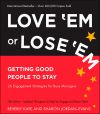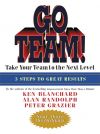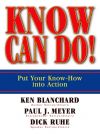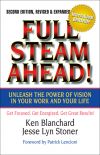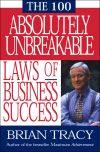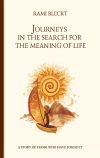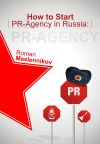Правообладателям!
Представленный фрагмент книги размещен по согласованию с распространителем легального контента ООО "ЛитРес" (не более 20% исходного текста). Если вы считаете, что размещение материала нарушает ваши или чьи-либо права, то сообщите нам об этом.Читателям!
Оплатили, но не знаете что делать дальше?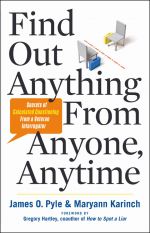
Текст бизнес-книги "Find Out Anything From Anyone, Anytime: Secrets of Calculated Questioning From a Veteran Interrogator"
Автор книги: Pyle James
Раздел: Зарубежная деловая литература, Бизнес-книги
Возрастные ограничения: +12
Текущая страница: 1 (всего у книги 1 страниц)
James O. Pyle, Maryann Karinch
Find Out Anything From Anyone, Anytime
Dedications
JIM PYLE
To my grandpa William Owen “Stump” Bagby, who made my childhood special.
To Bob Brubaker, an old-Hollywood actor and keen salesman who made me pay attention to myself and my talents.
To Ken Hobson, a superb U.S. Army student who paid the supreme price as a soldier and intelligence professional in Tanzania in 1998.
MARYANN KARINCH
To my mother, brother, Jim, and Greg Hartley.
Acknowledgments
JIM PYLE
I want to thank Greg Hartley, a most insightful and intriguing individual and friend, for his kind Foreword, and Maryann Karinch, for expanding my concepts and understanding of good questioning and making my oral teaching presentations, concepts, and formulas a clear and interesting read. For my good wife, Deborah, who still believes in me nearly a quarter century later, and my five “natural born interrogators,” Jimmy James, Corrie Anna, Sharon Marie, Jamie Dale Dorothea, and Megan Marie Louise Pyle, for demonstrating the curiosity and discovery that I finally recaptured for myself and have delivered to you, dear reader, to consider and hopefully enhance your careers and life.
Among the band of brothers and sisters who defend this great land, I am but a stepchild. I offer my most heart-felt thanks and respect to the thousands of U.S. military, special warfare, intelligence agency, and wounded warrior students it has been my humble privilege to stand before and teach the art of Human Intelligence Collection. Thank you for your attention, your service, and your sacrifices every day and from now on.
MARYANN KARINCH
Thanks to my curious and unflappable coauthor, Jim Pyle, and the great friend and colleague who brought us together and contributed so much to this book, Greg Hartley. As always, I want to tell Jim McCormick, my mom, and my brother how much I appreciate their consistent support and helpful insights. Thank you to the other contributors to this book whom I know personally – Judith Bailey, Dr. David Sherer, Dr. Bob Domeier, Jeff Toister, Susan RoAne, Peter Earnest, and Dr. Haven Caylor and his angelic, smart, and spirited children Carter and Ammon Caylor-Brown – as well as those I don’t know, but whose diligent questioning I appreciate, especially NPR’s Terry Gross, Fox News’s Chris Wallace, Staff Sergeant Eric Maddox, and Jamie McKenzie of From Now On. Thanks also to Colonel Harry R. Bailey (Ret.) for hosting the series of meetings Jim and I had when we launched our work together. I also greatly appreciate the support from Career Press; the team supporting us on this venture is tremendous: Adam Schwartz, Michael Pye, Kirsten Dalley, Laurie Kelly-Pye, Karen Roy, Allison Olsen, Ron Fry, Kara Kumpel, and Jeff Piasky.
Foreword by Gregory Hartley
Throughout my business career, I have watched people interviewing new candidates or trying to resolve a problem by turning what should be a dynamic conversation into a checklist: “Do you have any…” like a game of Go Fish. I say to these people, “You are talking at people, not to them.” Because business is a subset of life, there is no surprise I find people doing the same thing in their personal lives. Because of my background in human behavior, more than one of these people has asked me to write a book about information discovery to help guide their conversations with customers and others. When Jim and I were talking about his concept for this book, I shared with him how desperately people need these skills.
When I first met Jim, he was already an interrogator in the U.S. Army’s 82nd Airborne Division, returning to Monterey, California, to learn Arabic. I had not yet been trained as an interrogator. We spent most of two years there in Arabic school together, and along the way I got to know Jim well. He was among the brightest folks I met in the Army, and he had the added advantage of diverse work experiences prior to becoming an interrogator. He would constantly make observations about a person based on the words he or she chose. He would ask why more than any adult I had met. I assumed going to interrogation school would make me understand everything Jim had talked about.
When I left language school, it was off to interrogation school where Jim was an instructor. In interrogation school, you spend most of your time on two things: approaches, or how to get someone to “break”; and questioning, or how to get their information. Most people can get through the approaches portion of this training with lackluster performance, but questioning separates the successful interrogators from the failures. There is just no way to fake questioning; you need a logical mind, a clear plan, and a whole lot of curiosity about what and why. Without that curiosity it just turns into a checklist, or sort of a high-stakes game of Go Fish. Jim was a dynamic instructor with a spark for teaching people to think about why someone was saying something rather than to give a rote response and ask the next question on the list.
Jim would rely on that razor-sharp insight and a steady flow of source-driven questions to exploit the story so effectively that the questioning itself became the approach. Through many years I have watched Jim perfect his style of questioning to the point that it is his art in the interrogation room.
When I left interrogation school, I realized Jim’s style was not the product of 18 weeks of training, but of a varied background overlaid with that basic skill set and used in the intelligence business and daily life. This created an understanding of how to talk to people in a productive manner and turn even a mundane conversation into a fluid one. There is no better person to write a book about discovery than Jim Pyle.
Jim is among the best questioning trainers in the business. He is stellar at talking to someone to get at the root cause of a problem, gather information about a situation, and better understand the drive of the other person in the conversation. His style of questioning will help people in all areas of life.
Expertise is the intersection of people and knowledge – knowing how to question better than the average interrogator and raising that skill to an art form isn’t enough to write a book. Writing is a complex process, and getting information on paper in a form that others can understand and use is tough. When Jim asked me about writing, there was only one answer: He should partner with Maryann.
Maryann has a background as diverse as Jim’s. I often say to Maryann that she should brand herself as the working-with-diverse-teams expert. She has written with and helped experts from varied backgrounds publish their thoughts and along the way picked up something from each.
Maryann and I have written seven books together about human nature and interrogation. Maryann brings not only writing and publishing savvy to the partnership, but at this point, an understanding of the concepts of interrogation and the intelligence business. Maryann was a good and quick study in the body language books we wrote together. I knew Maryann would be a strong contributing partner who would challenge Jim to think of new ways to convey his thoughts.
This book is the joint effort of these two people I know well. Maryann perfectly captures the voice of her coauthor, and I think you will find Jim’s insight to human nature entertaining and useful. I hope you enjoy his way of thinking about a person’s relationship to information – and how to get at that information – as much as I have.
Gregory Hartley is a decorated former U.S. Army interrogator and the coauthor of seven books on human behavior and extreme interpersonal skills. He is currently Director of Project Management for Kone Corporation.
Preface
My brother and I became interested in cars at an early age. One day, we asked our dad if he would lift up the hood so we could see what was underneath it. He grumbled a bit, but he did, and then he went back into the house. Seeing what was under the hood didn’t quite satisfy us, so we started removing pieces from the car. By the time my dad discovered us, we had pulled the intake manifold off, disconnected the exhaust manifold, and broken the bolts so we could see inside the engine.
We were in so much trouble.
The positive spin on this is that we were intent on discovery, not destruction. Questioning is about discovery, and the process I’ve developed and taught Department of Defense students will give you the tools you need to extract all of the components from under the hood and get all the way to the pistons. You will be shocked at the depth of knowledge you will discover – if you want it – about your customers, job applicants, colleagues, vendors, and friends, as well as perfect strangers and criminals.
The first step in learning good questioning skills is grasping the true power of a question. For example, I was in line at the post office last Christmas season when a woman came in with her arms full of packages. “Wow!” I said to her, “How many friends do you have?” She volunteered that all of packages were for her daughter (and her family), who had dropped out of college to have children. She then went on to tell me how displeased she was about that choice. She and her husband had even asked the daughter to pay back the money they’d invested in her “lost” two years of college. All I did was ask a question and I got a peek under the hood at this woman’s emotional engine compartment.
Placing value on questions means that, to some extent, you adopt the mentality of my students: “Interrogation never stops.” In other words, the person you’re posing questions to may think that the conversation has moved on past the job interview, for example, but you are still listening to every answer and discovering relevant things about the person. You may no longer be asking questions related to work history or education, but your question, “What do you think of this weather?” might lead to the knowledge that the applicant has panic attacks when she has to drive in the rain.
The secret to finding out anything you want to know is simply to ask good questions. Most people trip through life asking bad questions – of teachers, friends, coworkers, clients, prospects, experts, and suspects. Even people trained in questioning, such as journalists and lawyers, commonly ask questions that get partial or misleading answers. People in any profession will find immediate benefits in developing the skill and art of good questioning.
In this book, Maryann and I will explore:
✗ What’s so hard about asking a good question? You’ve been asking questions since you could talk. The problem is that the more knowledge you acquired and the more sophisticated your vocabulary became, the worse you probably got at asking questions.
✗ Changing the way you think. The structure and flow of effective questions probably won’t come naturally to you. You’ll need to rewire your brain a bit, to become a little more like Socrates.
✗ Structuring a good question. Effective questioning is about accuracy and efficiency, and the way that most people structure questions on a day-to-day basis is about neither one.
✗ Using different types of questions to your advantage and knowing the difference between a good question and a bad question.
✗ Identifying discovery areas and knowing how to stick with a line of questioning that tells you all you need to know about a person, place, thing, or event in time.
✗ Honing the essential skills of listening and note-taking.
✗ Analyzing the answers you get to determine if you need more information or if the information you’ve been given is flawed or untrue.
✗ Using effective questioning to enable you to gain measurable advantages in your professional life and to gain real expertise fast.
When I was part of the interrogation world, I was known mostly as a questioning instructor and a strategic debriefer – meaning that the people around me expected me to be the best at asking questions and getting answers. I’ve been training other interrogators in questioning techniques since 1989. You are now the students who can exploit the questioning skills of our best interrogators and use them to your advantage in your profession.
I encourage you to see questioning as a handshake. Asking questions is an invitation to a relationship. Rather than being an aggressive or intrusive exercise – which is how some might view it – I see it as a process that enables you to connect with other people and what they want to share.
Introduction
What’s So Hard About Asking a Question?
On June 23, 2013, Nik Wallenda crossed a gorge near the Grand Canyon on a two-inch wire. With no tether or safety net, he made the quarter-mile walk 1,500 feet above the ground. Millions of people watched the televised feat with wide-eyed, childlike fascination. The stunt inspired a flurry of questions from viewers: What is he thinking? When did he start walking on wires? How does he feel? Where are his kids? Many questions popped up in the 700,000 Tweets about #skywire; consistent with the Twitter protocol, they were concise: “Why is he wearing jeans?” and “Why did his wife let him do this?”11
Brooklyn Decker’s Twitter account, @ BrooklynDecker, 7:55 p.m., June 23, 2013.
[Закрыть]
From my perspective, Nik Wallenda’s spectacular act stunned millions of people into becoming better questioners – at least for 22 minutes and 54 seconds, which is how long it took Wallenda to cross. The bursts of what, when, why, where, and how were the basis for a lot of well-structured, informative stories about the man and his achievement.
But complex news issues such as foreign relations, federal budgets, and trade deficits seem to invite us to ask more “sophisticated” questions – to stuff a few more syllables and concepts into our questions. For example, consider some of the questions journalists asked U.S. President Barack Obama at an April 30, 2013 press conference. The two opening questions, posed by the same person with no break allowing for an answer in between, were as follows:
On Syria, you said that the red line was not just about chemical weapons being used but being spread, and it was a game-changer. Do you risk U.S. credibility if you don’t take military action? And then on Benghazi, there are some survivors of that terror attack who say they want to come forward and testify…and they say they’ve been blocked. Will you allow them to testify?22
Ed Henry, Fox News Chief White House Correspondent, April 30, 2012 Press Conference with President Barack Obama; www.politico.com/story/2013/04/obama-press-conference-syria-sequestration-transcript-video-90775.html#ixzz2XctIaijr.
[Закрыть]
This pair was followed by a string of similarly flawed questions from multiple White House correspondents:
✗ By game-changer you mean U.S. military action?33
Ibid.
[Закрыть]✗ Will you help them come forward and just say it once and for all?44
Ibid.
[Закрыть]✗ A senior member of the Armed Services Committee has said that Benghazi and Boston are both examples of the U.S. going backwards on national security. Is he right? And did our intelligence miss something?55
Jessica Yellin, CNN Chief White House Correspondent, April 30, 2012 Press Conference with President Barack Obama; www.politico.com/story/2013/04/obama-press-conference-syria-sequestration-transcript-video-90775.html#ixzz2XctIaijr.
[Закрыть]✗ Are you getting all the intelligence and information you need from the Russians? And should Americans be worried when they go to big, public events now?66
Ibid.
[Закрыть]✗ Do you still have the juice to get the rest of your agenda through this Congress?77
Jonathan Karl, ABC News Chief White House Correspondent, April 30, 2012 Press Conference with President Barack Obama; www.politico.com/story/2013/04/obama-press-conference-syria-sequestration-transcript-video-90775.html#ixzz2XctIaijr.
[Закрыть]
Note that this is the exact sequence of the questions. So in the first nine questions posed to the President – and this is about halfway into the press conference – what are the only words President Obama would have needed to answer each of these questions? “Yes” and “no.” He did not give yes-or-no answers, of course; he talked at length about the issues raised. This is why some people who watched the press conference may have concluded that the journalists did a marvelous job of drawing out information from the President. In reality, the journalists with substandard questions merely benefited from the fact that President Obama had a great many points he intended to make during the press conference.
Конец ознакомительного фрагмента.
Текст предоставлен ООО «ЛитРес».
Прочитайте эту книгу целиком, купив полную легальную версию на ЛитРес.
Безопасно оплатить книгу можно банковской картой Visa, MasterCard, Maestro, со счета мобильного телефона, с платежного терминала, в салоне МТС или Связной, через PayPal, WebMoney, Яндекс.Деньги, QIWI Кошелек, бонусными картами или другим удобным Вам способом.
Внимание! Это ознакомительный фрагмент книги.
Если начало книги вам понравилось, то полную версию можно приобрести у нашего партнёра - распространителя легального контента ООО "ЛитРес".Правообладателям!
Представленный фрагмент книги размещен по согласованию с распространителем легального контента ООО "ЛитРес" (не более 20% исходного текста). Если вы считаете, что размещение материала нарушает ваши или чьи-либо права, то сообщите нам об этом.Читателям!
Оплатили, но не знаете что делать дальше?
